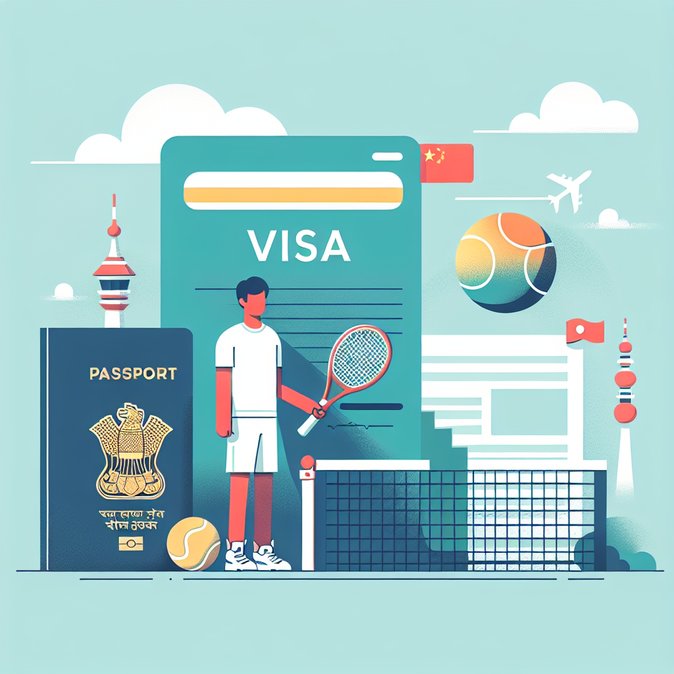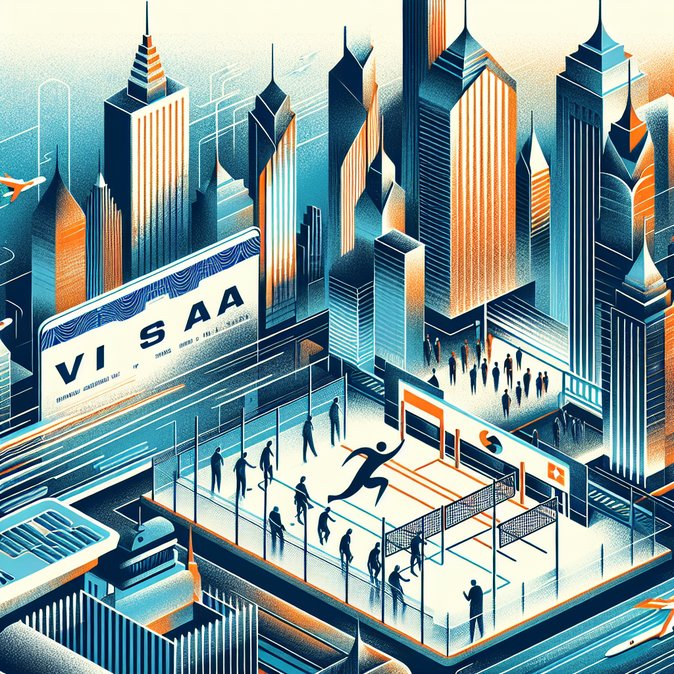
At the Ministry of Foreign Affairs’ regular press conference on 13 November 2025, spokesperson Lin Jian addressed reports that India’s top-ranked tennis player, Sumit Nagal, had been refused a Chinese visa to compete at the Australian Open Wild-Card Play-off in Chengdu next month. Lin stated that “China will issue visas in accordance with laws and regulations for athletes from all countries, including India,” emphasising that applications are assessed individually and that sporting exchanges are welcomed.
The clarification comes amid heightened scrutiny of China’s visa adjudication after several high-profile conference delegates complained of opaque refusals earlier this year. While the Foreign Ministry did not comment on the specifics of Nagal’s case, the public reassurance aims to calm organisers and sponsors preparing for a packed winter sports calendar that also includes the Chengdu Open ATP 250 and the Beijing Bing Dwen Dwen Charity Classic.
![Beijing pledges fair visa processing after Indian tennis player complains of denial]()
For mobility and event-logistics teams, the message is clear: submit complete documentation early and maintain close liaison with local Chinese consulates. Event organisers should build contingency timelines into athlete travel plans but can cite the Foreign Ministry statement if embassies raise last-minute queries.
Indian corporate sponsors such as Tata Motors, which is backing the Chengdu event, welcomed the statement but urged further streamlining, noting that Chinese visa appointment slots in Mumbai and New Delhi are booked out three weeks in advance. Some analysts see the episode as a reminder that, despite China’s broader visa-free push, case-by-case scrutiny remains stringent, especially for nationals of countries with which Beijing has sensitive bilateral issues.
The incident also highlights reputational stakes: smooth athlete access is critical if China is to bid for future international tournaments. The NIA is reportedly considering a dedicated “sporting event” visa sub-category, analogous to the MICE visa introduced in 2023, but no timeline has been announced.
The clarification comes amid heightened scrutiny of China’s visa adjudication after several high-profile conference delegates complained of opaque refusals earlier this year. While the Foreign Ministry did not comment on the specifics of Nagal’s case, the public reassurance aims to calm organisers and sponsors preparing for a packed winter sports calendar that also includes the Chengdu Open ATP 250 and the Beijing Bing Dwen Dwen Charity Classic.

For mobility and event-logistics teams, the message is clear: submit complete documentation early and maintain close liaison with local Chinese consulates. Event organisers should build contingency timelines into athlete travel plans but can cite the Foreign Ministry statement if embassies raise last-minute queries.
Indian corporate sponsors such as Tata Motors, which is backing the Chengdu event, welcomed the statement but urged further streamlining, noting that Chinese visa appointment slots in Mumbai and New Delhi are booked out three weeks in advance. Some analysts see the episode as a reminder that, despite China’s broader visa-free push, case-by-case scrutiny remains stringent, especially for nationals of countries with which Beijing has sensitive bilateral issues.
The incident also highlights reputational stakes: smooth athlete access is critical if China is to bid for future international tournaments. The NIA is reportedly considering a dedicated “sporting event” visa sub-category, analogous to the MICE visa introduced in 2023, but no timeline has been announced.









